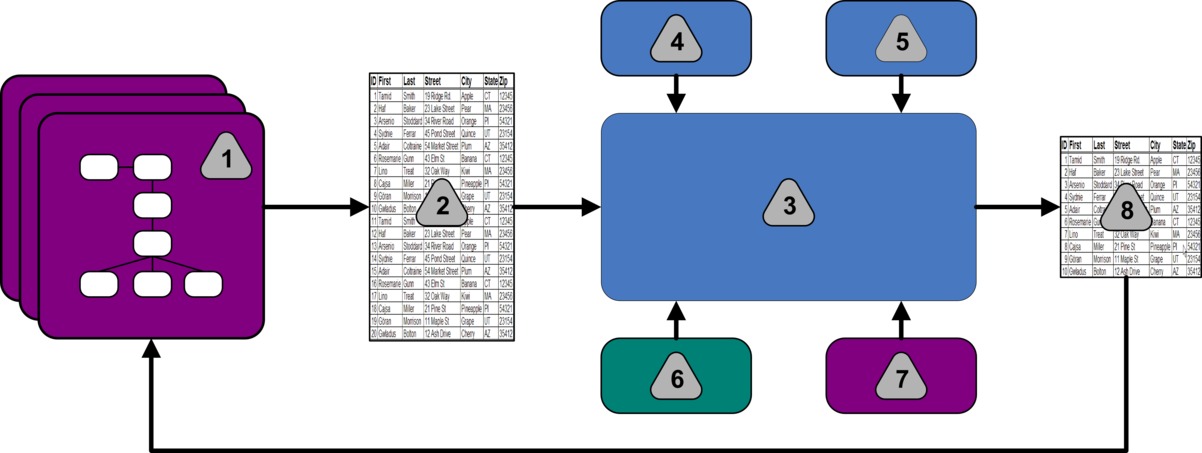Contact Optimization data flow
Contact Optimization works by taking a list of proposed contacts from one or more Campaign flowcharts, applying rules to the proposed list, and generating an optimized list of contacts.
The following diagram shows how data flows between Campaign and Contact Optimization.

- Campaign flowcharts
- Proposed contacts
- Contact Optimization optimization algorithm
- Constraint rules from Contact Optimization session
- Business rules from Contact Optimization session
- Contact history
- Segments and offer lists from Campaign
- Optimized contacts
In Campaign, you create flowcharts to select your proposed contacts. You then create a Contact Optimization session. The Contact Optimization session is where you define your constraints and business rules. You run the Contact Optimization session to apply the following items to your proposed contacts by using an optimization algorithm:
- Your rules and constraints
- Contact history
- Any other necessary data from your customer data
The Contact Optimization session returns an optimized list of contacts to Campaign. You can then use this optimized list in a flowchart that uses a contact processes. Contact processes control the actual execution of completed campaigns, which includes:
- The management and creation of contact lists
- The treatment of target audiences
- The logging of data
